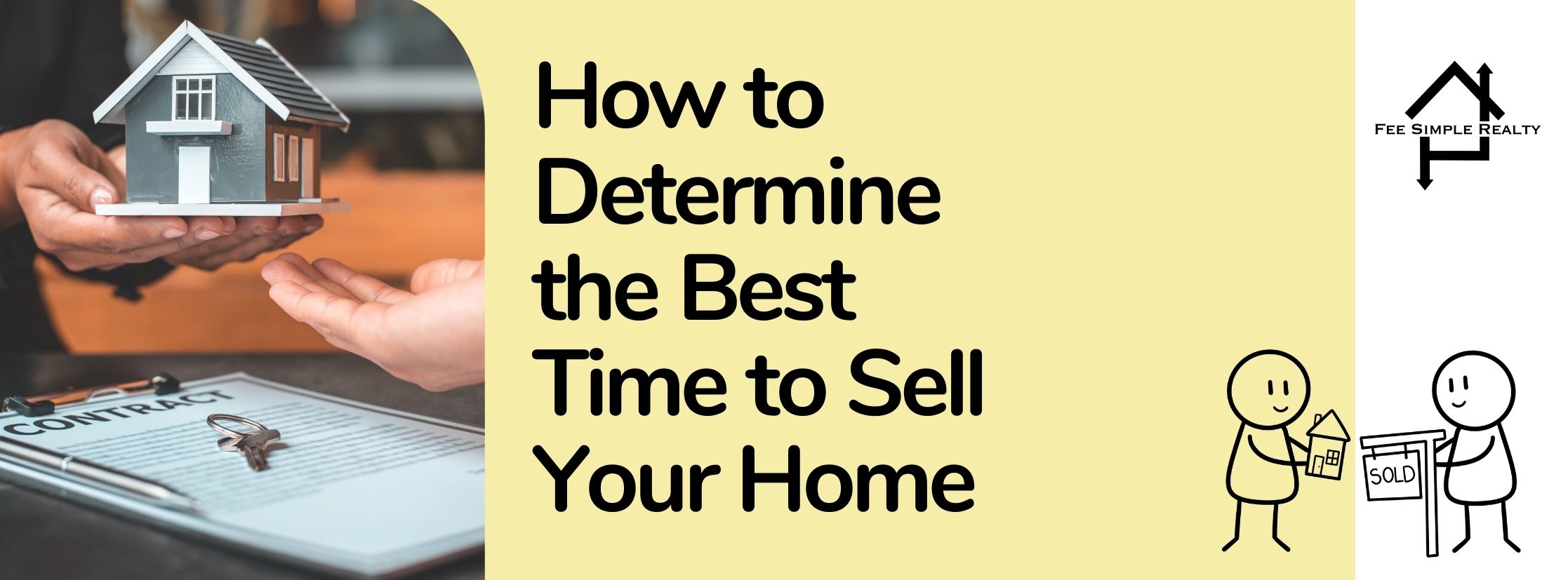How to Determine the Best Time to Sell Your Home
Timing is one of the most important factors when selling a home. Selling at the right time can help you maximize your profits and reduce the time your home spends on the market. But how do you determine the best time to sell? This post will explore the factors that influence the timing of a home sale and how you can use them to your advantage.
Overview: Key Factors in Timing Your Home Sale
Key Points:
- Market Conditions
- Seasonality in Real Estate
- Interest Rates and Economic Factors
- Personal Circumstances
- Local Market Trends
Detailed Breakdown: How to Determine the Best Time to Sell
1. Market Conditions
Simple Explanation: Understanding whether you’re in a buyer’s or seller’s market is crucial.
In-Depth Analysis: A seller’s market occurs when there are more buyers than available homes, leading to higher demand and better prices for sellers. Conversely, in a buyer’s market, there are more homes than buyers, leading to lower prices and longer listing times. Keeping an eye on real estate trends and consulting with local real estate experts can help you assess the market and determine if it’s the right time to list your home.
Considerations:
- Housing inventory levels
- Days on market for comparable homes
- Recent sales prices
2. Seasonality in Real Estate
Simple Explanation: Spring and early summer are traditionally the best times to sell.
In-Depth Analysis: The real estate market tends to be seasonal, with spring and early summer being the most active times. Buyers are more likely to be looking for homes during these months, as the weather is better, and many families prefer to move during the summer before the new school year starts. Listing during these high-activity months can increase your chances of selling quickly and at a favorable price.
Seasonal Trends:
- Spring is peak selling season
- Winter months may lead to fewer buyers but less competition
3. Interest Rates and Economic Factors
Simple Explanation: Interest rates impact buyers’ affordability and market activity.
In-Depth Analysis: Interest rates have a direct impact on mortgage affordability, which influences buyer demand. When interest rates are low, more buyers can afford homes, increasing demand and potentially driving up prices. On the other hand, when rates rise, buyer activity may slow down. Keeping an eye on interest rate trends and broader economic conditions can help you determine the best time to sell.
Economic Considerations:
- Current interest rate levels
- Employment rates and consumer confidence
- Inflation and economic growth
4. Personal Circumstances
Simple Explanation: Personal readiness can be just as important as market conditions.
In-Depth Analysis: Timing the sale of your home also depends on your personal circumstances. Are you ready to move? Do you need to sell quickly due to a job relocation or other life changes? Personal timelines and goals can heavily influence the timing of your home sale. Even if market conditions are not ideal, selling when it fits your personal needs may be the best choice.
Personal Factors:
- Job relocation or changes
- Financial readiness
- Family or lifestyle changes
5. Local Market Trends
Simple Explanation: Every market is different—local trends matter.
In-Depth Analysis: Real estate markets vary by location, and local trends may not always align with national ones. Researching local market conditions, such as inventory levels, average sales prices, and buyer activity in your area, can give you a clearer idea of the best time to sell your home. Consulting with a local real estate expert can help you navigate these trends effectively.
Local Considerations:
- Inventory levels in your neighborhood
- Recent sale prices for comparable homes
- Local economic and demographic trends
Conclusion
Timing your home sale effectively can significantly impact your final sale price and the time it takes to sell. By considering market conditions, seasonality, interest rates, personal circumstances, and local trends, you can make an informed decision about when to list your home. Whether you’re selling in Central Florida or elsewhere, understanding these factors will help you choose the optimal time to sell.
Other Related Topics
If you found this information helpful, you might also be interested in learning about the impact of local school districts on property values, how to finance your first investment property, or the benefits of green building and sustainable homes. Stay tuned for more insightful real estate posts!
Contact us today or visit our Instagram | Facebook .
